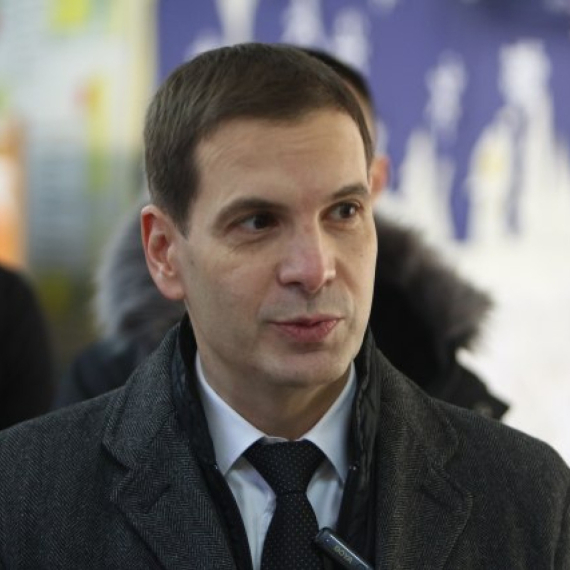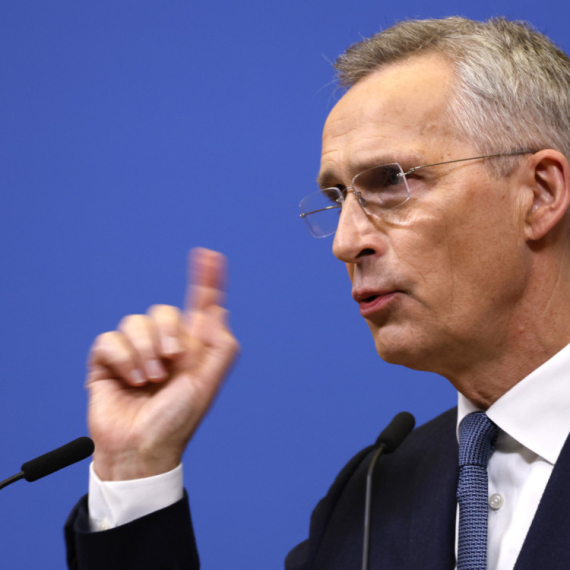Frattini: U.S. more open to Serbia
The new U.S. administration, under Barack Obama, is showing greater openness to Serbia, says Italian Foreign Minister Franco Frattini.
Friday, 10.04.2009.
13:44

The new U.S. administration, under Barack Obama, is showing greater openness to Serbia, says Italian Foreign Minister Franco Frattini. In an interview for Trieste daily Piccolo, he said that the new leadership in Washington could play a substantial role in the European integration of the Western Balkans. Frattini: U.S. more open to Serbia Frattini also announced that Hague Chief Prosecutor Serge Brammertz would be traveling to Belgrade again soon, in April or May, stating that he would then be in a position to receive all the necessary elements on Belgrade’s cooperation with the court, allowing the unfreezing of the Stabilization and Association Agreement in June. In the interview, titled “Obama’s Diplomacy is Geared towards Serbia’s EU Integration“, the daily conveys the minister’s belief, fortified at the recent EU-U.S. summit, that “Obama’s America“ is in favor of opening the doors to Croatia, Serbia, Bosnia-Hercegovina, Macedonia, Albania and Kosovo as soon as possible. It was precisely this that Frattini advocated in his eight-point proposal to his EU partners during Obama’s meeting with EU chiefs in Prague. Frattini’s conviction that “Obama’s America supports“ is based on “the very positive reaction of Secretary of State Hillary Clinton, who fully shares the Italian standpoint.“ Asked to outline the key differences in foreign policy towards the Balkans between the Obama administration and that of his predecessor George Bush, the minister explained that he saw “continuity in American foreign policy, but with the stress on greater openness towards Serbia, which I really value.“ “I sense a cohesion in the aim of gradually integrating Belgrade not only into the EU, but also into cooperation with the Atlantic alliance,“ he said, noting, though, that NATO integration was a “sensitive“ point in Serbia and that “as is well known, there is no united position on it in Serbian public opinion and it is not frequently discussed.“ “We give priority to Serbia’s EU integration,“ Frattini added. Asked about the Dutch veto on application of the Stabilization and Association Agreement with Serbia, Frattini responded that it was “still important to achieve abolition of visas by the end of the year, for which the time is nigh.“ Franco Frattini (FoNet, archive)
Frattini: U.S. more open to Serbia
Frattini also announced that Hague Chief Prosecutor Serge Brammertz would be traveling to Belgrade again soon, in April or May, stating that he would then be in a position to receive all the necessary elements on Belgrade’s cooperation with the court, allowing the unfreezing of the Stabilization and Association Agreement in June.In the interview, titled “Obama’s Diplomacy is Geared towards Serbia’s EU Integration“, the daily conveys the minister’s belief, fortified at the recent EU-U.S. summit, that “Obama’s America“ is in favor of opening the doors to Croatia, Serbia, Bosnia-Hercegovina, Macedonia, Albania and Kosovo as soon as possible.
It was precisely this that Frattini advocated in his eight-point proposal to his EU partners during Obama’s meeting with EU chiefs in Prague.
Frattini’s conviction that “Obama’s America supports“ is based on “the very positive reaction of Secretary of State Hillary Clinton, who fully shares the Italian standpoint.“
Asked to outline the key differences in foreign policy towards the Balkans between the Obama administration and that of his predecessor George Bush, the minister explained that he saw “continuity in American foreign policy, but with the stress on greater openness towards Serbia, which I really value.“
“I sense a cohesion in the aim of gradually integrating Belgrade not only into the EU, but also into cooperation with the Atlantic alliance,“ he said, noting, though, that NATO integration was a “sensitive“ point in Serbia and that “as is well known, there is no united position on it in Serbian public opinion and it is not frequently discussed.“
“We give priority to Serbia’s EU integration,“ Frattini added.
Asked about the Dutch veto on application of the Stabilization and Association Agreement with Serbia, Frattini responded that it was “still important to achieve abolition of visas by the end of the year, for which the time is nigh.“


























































Komentari 16
Pogledaj komentare